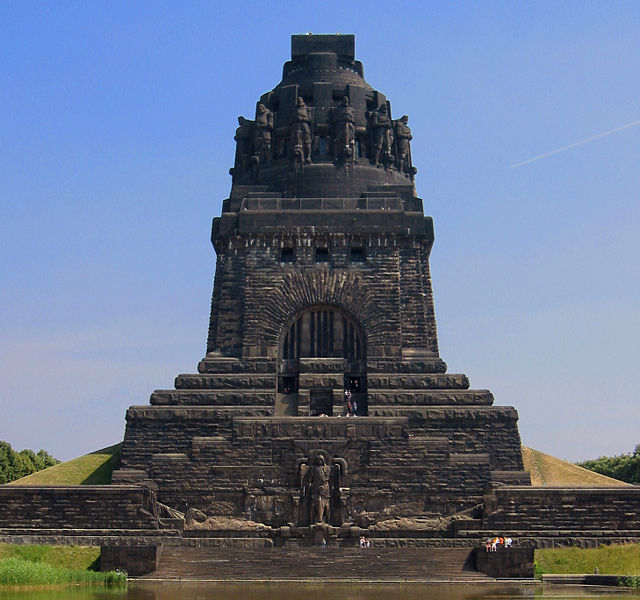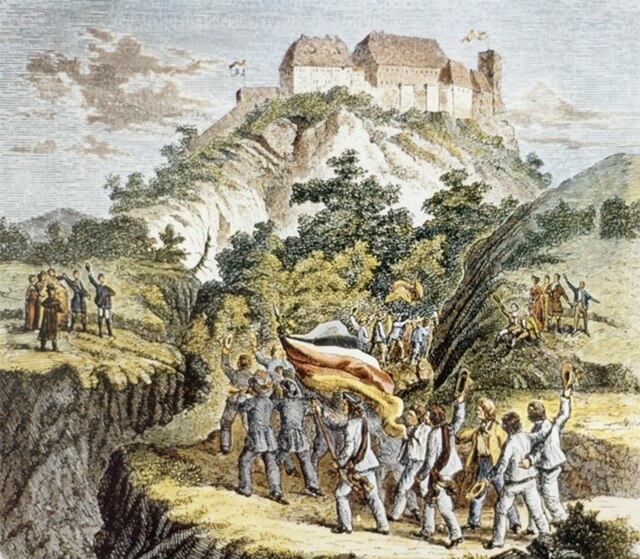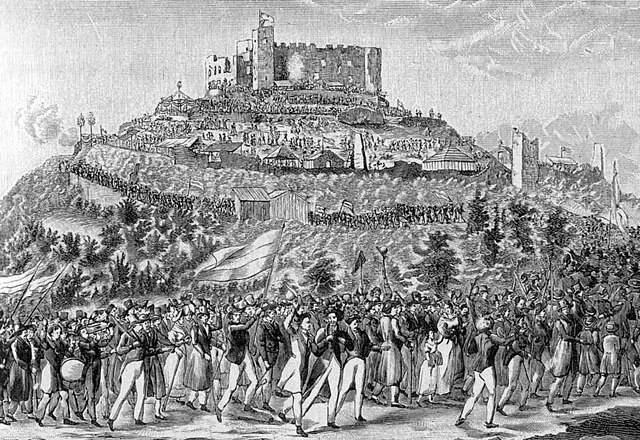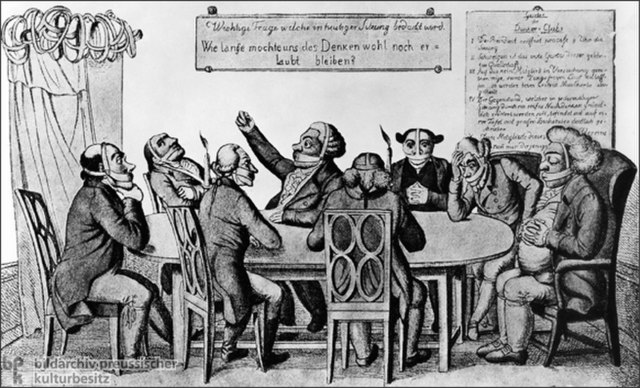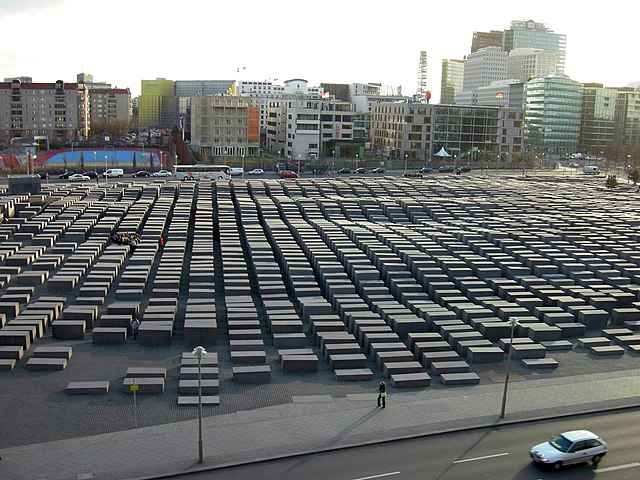The unification of Germany was a process of building the first nation-state for Germans with federal features based on the concept of Lesser Germany. It commenced on 18 August 1866 with adoption of the North German Confederation Treaty establishing the North German Confederation, initially a military alliance de facto dominated by Prussia which was subsequently deepened through adoption of the North German Constitution.
The Battle of the Nations monument, erected for the centennial in 1913, honors the efforts of the German people in the victory over Napoleon.
In October, 1817, approximately 500 students rallied at Wartburg Castle, where Martin Luther had sought refuge over three centuries earlier, to demonstrate in favor of national unification. Wartburg was chosen for its symbolic connection to German national character. Contemporary colored wood engraving
Pro-nationalist participants march to the ruins of Hambach Castle in 1832. Students and some professionals, and their spouses, predominated. They carried the flag of the underground Burschenschaft, which later became the basis of the flag of modern Germany.
A German caricature mocking the Carlsbad Decrees, which suppressed freedom of expression
Germans are the natives or inhabitants of Germany, or sometimes more broadly any people who are of German descent or native speakers of the German language. The constitution of Germany, implemented in 1949 following the end of World War II, defines a German as a German citizen. During the 19th and much of the 20th century, discussions on German identity were dominated by concepts of a common language, culture, descent, and history. Today, the German language is widely seen as the primary, though not exclusive, criterion of German identity. Estimates on the total number of Germans in the world range from 100 to 150 million, most of whom live in Germany.
The Holy Roman Empire in 972 (red line) and 1035 (red dots) with the Kingdom of Germany, including Lotharingia, marked in blue
Victims of the Holocaust in a mass grave at Bergen-Belsen concentration camp
Germans expelled from Poland in 1948
A Memorial to the Murdered Jews of Europe in Berlin; remembering the Holocaust is an essential part of modern German culture.

